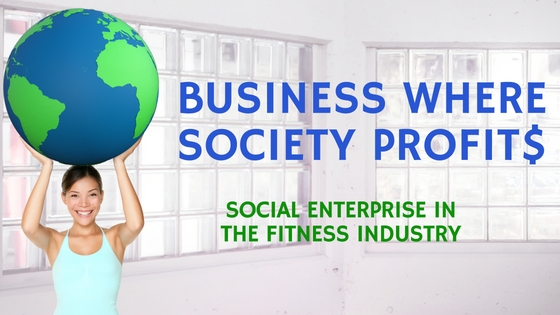“Can I do good and still make money?”
This is likely the most common question I receive when coaching Social Entrepreneurs in starting a business that has the dual purpose of generating revenue and creating social impact.
The evolution of impact entrepreneurship has grown as rising social, economic and environmental issues have led to increased poverty, inequity and harmful measures for our planet.
The statistics are staggering: Nearly five million people in Canada live in poverty, costing Canada as a whole billions of dollars. Mental and physical health has one of the biggest gaps between those that have means and those that don’t. Food insecure householders were 80% more likely to have higher rates of diabetes and high blood pleasure.
What is clear is that people are passionate and polarized about how to address these monumental realities. The business world is responding with a “shift to the middle” where pure profit is no longer an option, and social responsibility has found a way to be part of the DNA of a record number of Social Enterprises across the world.
Enter Health & Fitness Professionals
The fitness industry is the perfect position to link our deep care of people to a sustainable business model. Social Enterprise is leading to healthier humans in Canada and around the world.
One example is The Lucky Iron Fish™. By creating a small iron fish, to add to a variety of recipes, this Social Enterprise has made huge strides in helping reduce iron deficiency around the world. The Lucky Iron Fish™ was founded by Gavin Armstrong when he was a student at University of Guelph in 2012 as part of a project in Cambodia, where almost half of the population of 6 million were iron deficient. Not only is better health restored, the organization strives to have a strong social and environmental impact. This year alone has impacted over 50,000 lives with their buy-one-give-one program.
Gym owners can create a business model that can provide help for populations that are in the most need to access to fitness – while being a successful, viable business. Like Emma O’Connor of London who runs a boot camp style gym called Femme Force Fitness. Her program, “Strong Sisters” is free for women who have suffered abuse or trauma and could not otherwise afford a fitness membership. Her revenue model is created with the traditional membership fees and Emma has created strong partnerships with local school boards (who pay for her services) and other nonprofits (who have hire through grant programs) – all which add to her bottom line and this year giving over 100 young girls and women confidence and hope.
Combining innovation, opportunity and resourcefulness to solving our most pressing issues is resulting in a ground swell of economic activity. Support for Social Entrepreneurs is also growing across traditional business support centres.
The social aspect to how you serve can be a positive differentiator that goes far beyond a marketing tactic and can create dramatic impact where your business will thrive and your heart will be filled.
For more information about social enterprise, visit www.pillarnonprofit.ca.

